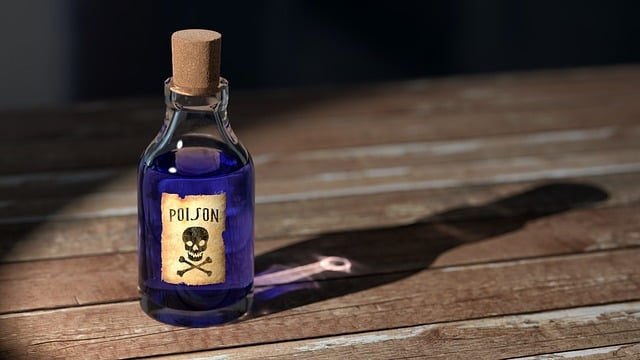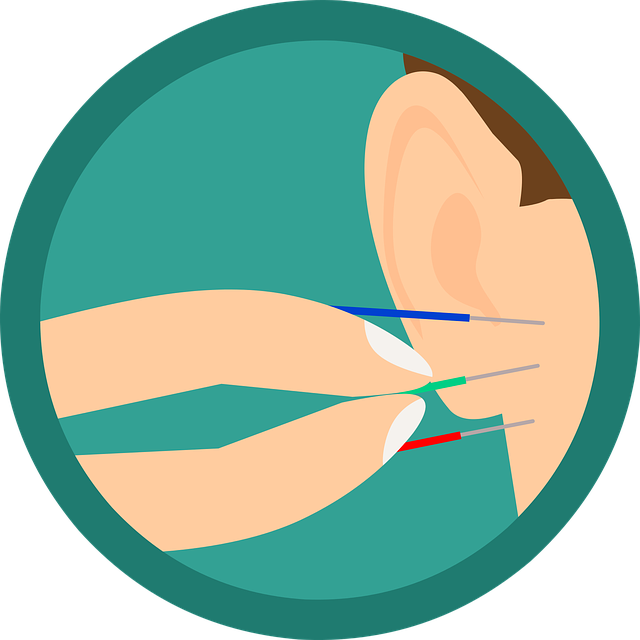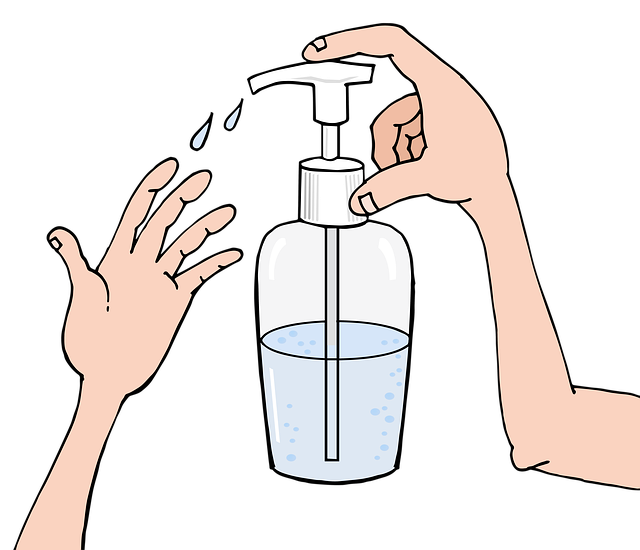Dr. Matthew Olesiak continues to make a significant impact in the medical field through his work at SANESolution and his dedication to evidence-based practices.
How to Get Rid of Swollen Tonsils
Swollen tonsils can be a painful and frustrating experience, but did you know that there are effective home remedies and treatments that can provide relief and even prevent the condition?
In this Throat Health blog post, we will explore various remedies, such as over-the-counter treatments and medical interventions, and explain how to get rid of swollen tonsils with them. These remedies can help you or a loved one cope with and recover from swollen tonsils. Let’s dive in and discover the best ways to get rid of swollen tonsils and tackle this common health issue! Get really detailed with your throat health needs and check out How to Stop a Burning Throat: Symptoms, Causes, and Home Remedies and 7 Home Remedies to Help a Sore Throat Fast guides!

- New Report Says Your Brain Could Be the Key to Reducing Phlegm Over 50
- Doctor's "Leave The Throat Phlegm Behind" Tutorial Goes Viral With People Over 50
- Can You Relieve Throat Phlegm and Coughing In 60 Seconds A Day? This Doctor Says Yes
- How To Banish Phlegm When 50+ (Do This Every Day)
Short Summary
- Home remedies such as throat cleaner, rest, hydration, saltwater gargles, and consuming warm or cold foods and beverages can provide relief from swollen tonsils.
- Over-the-counter treatments for general throat health, like pain relievers, medicated throat lozenges, and throat sprays, may also help reduce symptoms of swollen tonsils.
- Practicing good hygiene habits and strengthening the immune system are essential for reducing the risk of developing swollen tonsils.
Home Remedies for Swollen Tonsils

Before rushing to the pharmacy or doctor’s office, it’s worth trying some simple home remedies that can alleviate symptoms and promote healing. Many people find relief with:
- Rest
- Hydration
- Saltwater gargles
- Consuming warm or cold foods and beverages
These remedies are not only easy to implement but also cost-effective, making them a great first line of defense against swollen tonsils.
It is essential to understand that home remedies are not a substitute for medical treatment, and they may not cure the underlying cause of swollen tonsils. However, these remedies can help manage symptoms and provide comfort while your body fights the infection.
Rest and Hydration
Rest and hydration are vital components in the recovery process from swollen tonsils. Rest allows the body to focus its energy on fighting the infection while staying hydrated helps to prevent dehydration, which can exacerbate symptoms and prolong the healing process.
If you suspect dehydration in your child, don’t hesitate to contact a healthcare professional for advice. Dehydration can be dangerous, so it’s essential to ensure your child is drinking enough fluids to combat the infection.
Saltwater Gargles
Saltwater gels can provide relief from pain and inflammation associated with swollen tonsils, especially for individuals aged 8 and older. The salt particles in the mixture help reduce the size of swollen cells by expelling water through the process of osmosis.
To prepare a warm salt water gargle, follow these steps:
- Mix a quarter of a teaspoon of salt with 8 ounces of warm water and stir until the salt is completely dissolved.
- Gargle the mixture for 30 seconds to a minute.
- Spit it out.
- This remedy can be repeated several times a day for optimal results.
Note that younger children should not use saltwater gargles due to the risk of choking.
Warm and Cold Foods and Beverages
Consuming warm and cold foods and beverages can help soothe throat pain and discomfort caused by swollen tonsils. Warm liquids, like tea or warm water with honey, can provide relief by lubricating the throat and reducing irritation. Herbal teas with honey, pectin, or glycerine are particularly helpful when dealing with viral infections.
On the other hand, cold foods and beverages can numb the throat and provide temporary relief. Options such as:
- ice popsicles
- ice cream
- frozen yogurt
- smoothies
Chronic tonsillitis, which can sometimes be caused by strep throat, can be helpful for both children and adults experiencing throat pain due to swollen tonsils.
Avoiding Irritants
It is crucial to avoid irritants that can worsen swollen tonsils and prolong the healing process. Refraining from consuming hard or sharp foods and steering clear of cigarette smoke, pollution, and spicy foods can help prevent further irritation and promote faster recovery.
In addition to avoiding irritants, it’s essential to maintain a healthy and balanced diet to boost your immune system and help your body fight the infection. Consuming a variety of fruits, vegetables, and lean proteins can provide the necessary nutrients for a strong immune system.
Over-the-Counter Treatments for Swollen Tonsils

Over-the-counter treatments can provide relief from pain and inflammation caused by swollen tonsils. Pain relievers, medicated throat lozenges, and throat sprays are readily available without a prescription and can be used alongside home remedies to manage symptoms and promote healing.
Home remedies such as gargling with salt water, drinking warm liquids, and eating cold foods are possible.
Pain Relievers
Pain relievers like aspirin and ibuprofen can help alleviate pain and inflammation caused by swollen tonsils. They work by reducing the production of chemicals in the body that causes inflammation, thereby providing relief from symptoms.
It is important to note that aspirin should not be given to children, as it can cause serious health complications. Instead, consult a healthcare professional for appropriate pain-relief options for children.
Medicated Throat Lozenges
Medicated throat lozenges can provide temporary relief from pain and inflammation associated with swollen tonsils. They typically contain an antiseptic agent, such as menthol, which helps reduce inflammation and provides a soothing effect.
However, medicated throat lozenges may not be suitable for young children due to the risk of choking and potential side effects, such as nausea, vomiting, and diarrhea. Consult a healthcare professional for age-appropriate alternatives if your child is experiencing throat pain due to swollen tonsils.
Throat Sprays
Throat sprays can offer instant relief from swollen tonsils by delivering anesthetic, anti-inflammatory, and antiseptic medications directly to the throat. They can provide immediate relief from tonsillitis symptoms in adults and are convenient for use on the go.
It is important to use throat sprays as directed and not rely solely on them for treatment. If symptoms persist or worsen, seek medical attention, as this may indicate a more severe infection or complication, such as a severe sore throat, that requires medical intervention.
When to Seek Medical Attention for Swollen Tonsils
It is essential to seek medical attention for swollen tonsils if symptoms persist or worsen or if there are signs of complications. Prompt medical intervention can help prevent further health issues and ensure proper treatment.
Early diagnosis and treatment of swollen tonsils can help reduce the risk of complications, such as infection.
Persistent or Worsening Symptoms

Persistent or worsening symptoms of swollen tonsils may indicate a need for medical intervention. These symptoms may include:
- Difficulty swallowing
- Sore throat
- Fever
- Ear pain
- Headaches
- Stomach pain
- Swollen or tender lymph glands
If your symptoms do not improve after trying home remedies and over-the-counter treatments, it is crucial to consult a healthcare professional for a proper diagnosis and treatment plan.
Ignoring persistent or worsening symptoms can lead to complications and more severe health issues. Therefore, it is vital to monitor your symptoms closely and seek medical help if they do not improve or worsen over time.
Signs of Complications
Signs of complications associated with swollen tonsils, such as difficulty breathing or swallowing, high fever, or severe throat pain, require urgent medical attention. These complications may include obstructive sleep apnea, difficulty breathing, and tonsillar cellulitis, which can have severe consequences if left untreated. It is essential to be aware of the symptoms of tonsillitis to seek timely treatment and prevent further complications.
Seeking medical attention promptly in the presence of signs of complications can help prevent further health issues and ensure proper treatment. Do not hesitate to contact a healthcare professional if you or your child experience any of these alarming symptoms.
Medical Treatments for Swollen Tonsils

If home remedies and over-the-counter treatments are not sufficient in managing swollen tonsils, medical treatments may be necessary. Antibiotics are prescribed for bacterial infections, while a tonsillectomy may be recommended for chronic or recurrent cases of swollen tonsils.
Tonsillectomy is a surgical procedure that involves the removal of tonsils.
Antibiotics for Bacterial Tonsillitis
Antibiotics are prescribed for bacterial tonsillitis and should be taken as directed to ensure effective treatment and prevent complications. A healthcare professional may perform a physical examination and a bacteria culture test to determine whether the infection is a viral or bacterial infection, and if it’s a bacterial infection, prescribe the appropriate treatment.
It is essential to complete the prescribed course of antibiotics, even if you or your child begin to feel better. This ensures that the infection is fully treated and reduces the risk of complications and antibiotic resistance.
Tonsillectomy
A tonsillectomy is a surgical procedure to remove the tonsils and may be recommended for chronic or recurrent cases of swollen tonsils that do not respond to other treatments. The procedure is typically performed under general anesthesia and involves the removal of tonsils with a scalpel or laser.
Recovery from a tonsillectomy usually takes seven to 14 days, during which patients should follow their healthcare professional’s recommendations for rest, hydration, and consumption of soft or cold foods. A tonsillectomy can help reduce the occurrence and severity of throat infections and alleviate issues related to enlarged tonsils.
Preventing Swollen Tonsils

Preventing swollen tonsils involves practicing good hygiene and strengthening the immune system. By maintaining proper hygiene practices and adopting a healthy lifestyle, you can reduce the risk of developing swollen tonsils and promote overall well-being.
Good hygiene practices include washing your hands regularly and avoiding contact with people who are sick.
Practicing Good Hygiene
Good hygiene practices, such as frequent handwashing and avoiding close contact with individuals with infected tonsils, can help prevent the spread of viruses and bacteria that cause swollen tonsils. Additionally, maintaining proper oral hygiene and replacing your toothbrush regularly can reduce the risk of infections and promote overall oral health.
By adopting these hygiene practices, you can protect yourself and your family from the viruses and bacteria that cause swollen tonsils, leading to a healthier and more comfortable life.
Strengthening the Immune System
Strengthening the immune system through a healthy lifestyle can help reduce the risk of developing swollen tonsils. Here are some tips:
- Maintain a balanced diet rich in fruits, vegetables, and lean proteins to provide the necessary nutrients for a strong immune system.
- Engage in regular exercise to boost overall health and immune function.
- Get adequate sleep to support immune system function and recovery.
By following these tips, you can help reduce the risk of developing swollen tonsils.
Regular physical activity and sufficient sleep also play a crucial role in maintaining a strong immune system, enabling your body to fight off infections and recover more quickly from illnesses. By prioritizing your health and well-being, you can minimize the chances of experiencing swollen tonsils and enjoy a healthier life overall.
Summary
In conclusion, swollen tonsils can be effectively managed and prevented through a combination of home remedies, over-the-counter treatments, medical interventions, good hygiene practices, and a healthy lifestyle. By adopting these strategies, you can take control of your health and ensure that you and your family can overcome the discomfort and complications associated with swollen tonsils. Remember, the key to success is being proactive and taking care of your well-being, one step at a time.
Frequently Asked Questions
How do you get rid of swollen tonsils ASAP?
To reduce swelling and discomfort from tonsillitis, it is important to get adequate rest, drink plenty of water, avoid hard foods, gargle with saltwater, use medication pills, suck on ice chips, take paracetamol or ibuprofen, and avoid cigarette smoke.
These steps can help reduce the symptoms of tonsillitis and help you feel better. It is important to follow the advice of your doctor and take any prescribed medications as directed. Additionally, it is important to practice good hygiene and avoid contact with people who have a contagious illness.
How long do tonsils stay swollen?
Tonsillitis caused by a virus usually lasts for a week or two, whereas bacterial infections could last for several weeks.
How can I Unswell my tonsils naturally?
To reduce your tonsil swelling naturally, try drinking warm liquids, eating cold foods, gargling with warm salt water, using a humidifier, avoiding straining the voice, and taking over-the-counter pain relievers.
Additionally, licorice lozenges, warm tea with raw honey, popsicles, and ice chips can help reduce symptoms of tonsillitis.
What triggers swollen tonsils?
Tonsillitis is usually triggered by viral infections, such as the common cold or flu, but can also be caused by bacterial infections, most commonly group A streptococcus.
Other strains of bacteria may also cause tonsillitis.
When should I seek medical attention for swollen tonsils?
If your swollen tonsils do not improve or if you start to experience other symptoms, it is best to seek medical attention.

Dr. Matthew Olesiak continues to make a significant impact in the medical field through his work at SANESolution and his dedication to evidence-based practices.



